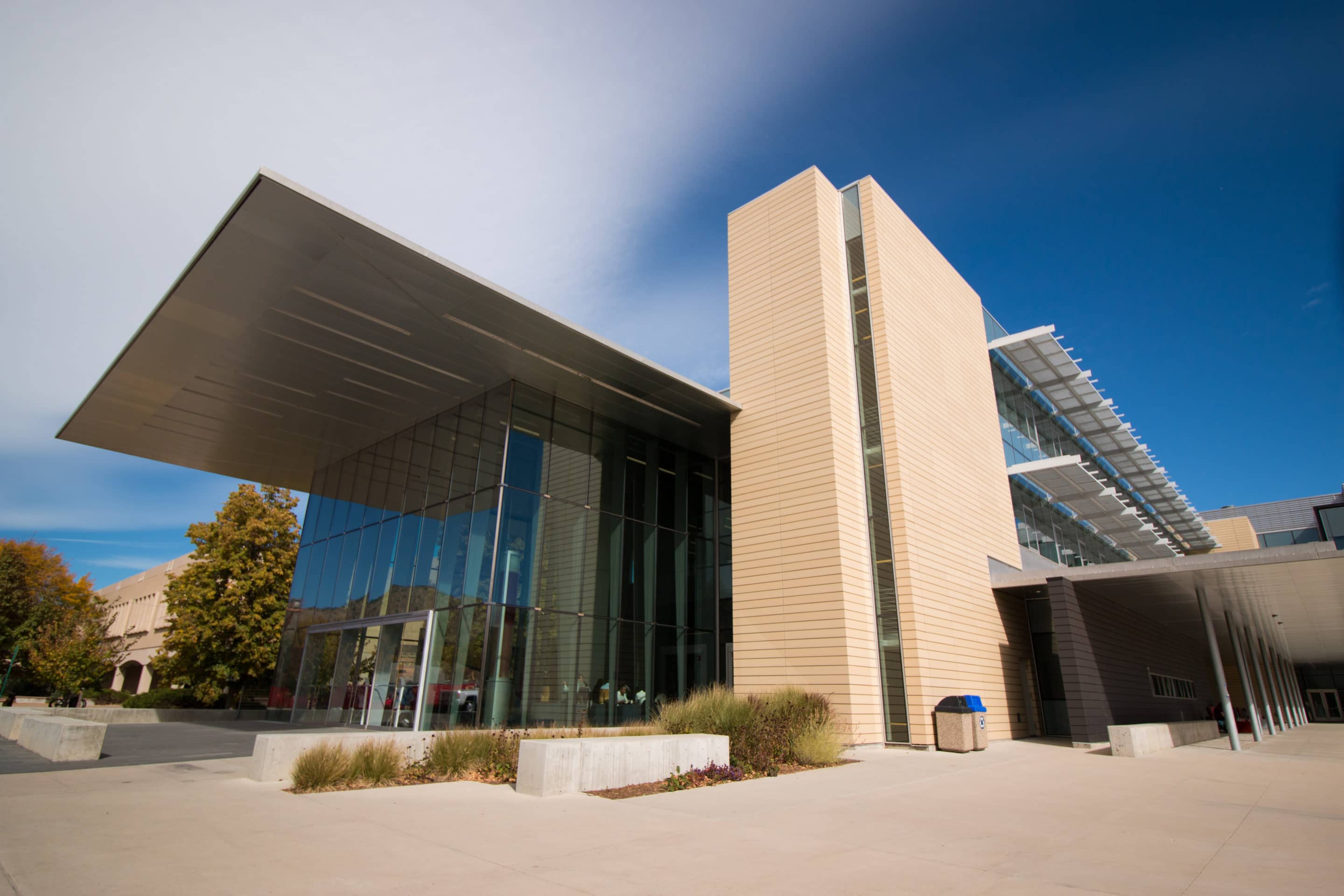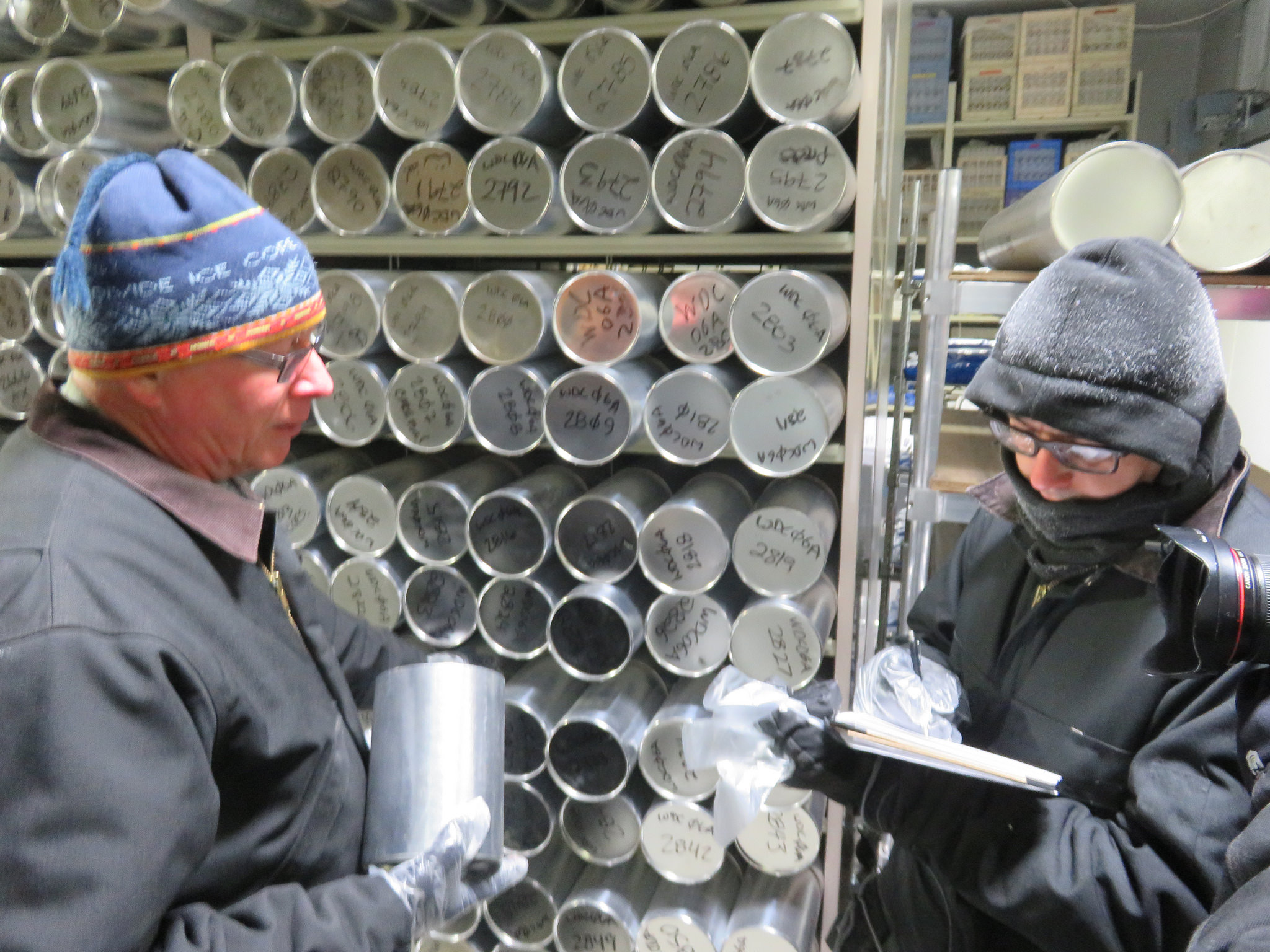Petroleum Engineering Graduate Program
Program Description
Petroleum engineering at Colorado School of Mines is not a narrowly-focused engineering discipline. In addition to having a petroleum engineering and earth science background, a petroleum engineer must have a good understanding of basic engineering, the natural sciences and mathematics.
Skills in this branch of engineering are needed to meet the ever-increasing demand for energy. The world’s energy portfolio includes hydrocarbon, geothermal and wind energy storage as well as environmental issues such as nuclear waste disposal. The program emphasizes integrated, multidisciplinary teamwork in classroom instruction and research and actively pursues interdisciplinary activities with many other Mines departments, particularly the Earth Science/Engineering programs.
Our mission is to educate engineers for the worldwide petroleum industry at the undergraduate and graduate levels, perform research that enhances the state-of-the-art in petroleum technology, and to serve the industry and public good through professional societies and public service.
All disciplines within the field of petroleum engineering, which can be categorized into drilling, production, and reservoir engineering, are covered in depth at both the undergraduate and graduate levels. Specific areas of focus are fundamental fluid and rock behavior, well design and construction, well completion and stimulation, formation evaluation, well testing, reservoir characterization, production operations and artificial lift, reservoir engineering and management, supplemental recovery, economic evaluation of petroleum projects and unconventional oil and gas reservoirs.
Degree Options
See the PE Catalog for full requirements and course descriptions.
Combined Program In PE
For PE BS students going for a PE Master’s degree – allows you to double count 6 credit hours in both the undergraduate and the graduate program.
Masters of Science
Degree Requirements:
- 24 hr. of course credit
- 6 hr. research credit
- Write and defend a thesis
Masters of Engineering
Degree Requirements:
- 30 hr. of course credit
- no thesis
Doctor of Philosophy
Students with an MS in petroleum engineering or another complementary discipline can be accepted to the Doctor of Philosophy program. To obtain the PhD degree, a student must demonstrate unusual competence, creativity and dedication in the degree field.
Degree Requirements:
- At least 54 credit hours beyond the Master’s degree of which no less than 30 credit hours earned by research.
- Write and defend a thesis
Application Requirements
The department requires that all applicants have taken core engineering, science and math courses before applying to the petroleum engineering graduate program. These classes are: three courses of calculus, two courses of chemistry with quantitative lab, two courses of physics, fluid mechanics, thermodynamics, mechanics of materials, statics and differential equations.
Minimum scores required for applications to be reviewed are:
- GRE
- Masters: Verbal 139, Quantitative 155, Analytical 3.0
- PhD: Verbal 139, Quantitative 159, Analytical 3.5
- GPA: 3.0 on 4.0 scale
- TOEFL: 79 out of 120
- Reading 20, Listening 21, Writing 17, Speaking 21
Applicants with a weak background in petroleum engineering will be reviewed if their undergraduate record (geophysics, chemical, civil, electrical or mechanical engineering) is satisfactory, and if their GRE scores and the TOEFL scores (for international applicants) are satisfactory.
Provisionally admitted students will be required to take up to seven PE undergraduate courses to complete any deficiencies and demonstrate their ability before being fully admitted to the graduate program. An advisor would sit down with you once you are on campus to go over your transcripts and work history to determine if all the deficiency courses would be required. You would need to pass them with a GPA of 3.0 or better to be fully accepted into the graduate program.
Requirement for the PDA Certificate: Bachelor of Science in Petroleum Engineering or Equivalent Experience
Graduate Dual Degree Program: Colorado School of Mines and University of Leoben
Graduate students in the Petroleum Department have the opportunity to participate in a dual degree program with the Petroleum Department at University of Leoben, Austria. If enrolled in this unique program, students who complete all requirements will graduate with a Master of Science degree from both institutions, with a focus on reservoir management. Students will spend two semesters at Mines and two semester at the University of Leoben. Each school will also require their own final project: Research, write and defend a thesis for Colorado School of Mines and research and oral test for University of Leoben.
Mines Requirements for the Dual Degree:
- 15 credits of Graduate Level courses at Mines
- 6 Credits of Research
University of Leoben Requirements for the Dual Degree:
- 54 ECTS course credits at MUL
- 6 ECTS course credits that may be taken at either MUL or Mines
Deadline to submit applications: An application is submitted to both universities.
- Colorado School of Mines: March 1st for Fall review
- University of Leoben: Feb 5th for Winter review
Qualifications for the program include:
- The equivalent of a U.S. Bachelor’s degree with a strong academic background
- Meeting all requirements of both universities for entrance into the program.
- Colorado School of Mines – Application Requirements section on this page.
- University of Leoben – Application Requirements
Tuition Fees: Students will pay the appropriate tuition and fees at the school they attend each semester.
- Colorado School of Mines: Tuition and Fees
- University of Leoben: Tuition and Fees
Contact:
- International Admissions and Marketing Coordinator, Amanda Rodriguez: arodriguez@mines.edu
- Petroleum Engineering Program Manager, Nellie Link: link@mines.edu
Exchange Programs
Undergraduate and Graduate students in the Petroleum Department have the opportunity to participate in study abroad programs with the following institutions:
- King Fahd University of Petroleum and Minerals, Dhahran Saudi Arabia
- IFP-Petroleum Economics and Management, Rueil-Malmaison, France
- Montanuniversitat, Leoben Austria
- Khalifa Institute, Abu Dhabi, UAE
- University of Nicosia, Cyprus
- University of Aberdeen, Scotland
- Norwegian University of Science and Technology (NTNU), Trondheim, Norway
Interested students, please contract the Office of Global Education about specifics for each program.
Organizations
The Petroleum Engineering Department encourages involvement with the Society of Petroleum Engineers, the American Association of Drilling Engineers, and the American Rock Mechanics Association. The department provides some financial support for students attending the annual technical conferences for these professional societies.
Local Chapters:

Facilities
 Marquez Hall, the state-of-the-art home of the Petroleum Engineering Department, includes a visualization center as well as numerous laboratories and classrooms equipped with the technology needed to keep students and research on the cutting edge. This building has greatly enhanced our existing facilities:
Marquez Hall, the state-of-the-art home of the Petroleum Engineering Department, includes a visualization center as well as numerous laboratories and classrooms equipped with the technology needed to keep students and research on the cutting edge. This building has greatly enhanced our existing facilities:
Computer Laboratory
A state-of-the-art computer laboratory is available for general use and classroom instruction. Software includes more than $5 million in donated industry software used by oil and gas companies and research labs around the world.
Drilling Simulator Laboratory
Rare on university campuses, this lab contains a computer-controlled, full-scale drilling rig simulator. It includes drilling controls that can be used to simulate onshore and offshore drilling operations and well control situations.
Reservoir Characterization Laboratory
Properties of rock are measured that affect economic development of reservoir resources of oil and gas. Measured properties include permeability, porosity, and relative permeability. “Hands on” experiences with simple and sophisticated equipment are provided.
Drilling Fluids Laboratory
Modern equipment enables students to evaluate and design fluid systems required in drilling operations.
Fluids Characterization Laboratory
A variety of properties of fluids from oil and gas reservoirs are measured for realistic conditions of elevated temperature and pressure. This laboratory accentuates principles studied in lectures.
Prospective Students

Career Paths
The petroleum industry offers a wide range of employment opportunities for Mines petroleum engineering students during summer breaks and after graduation. Exciting experiences range from field work in producing oil and gas fields to office jobs in small towns or large cities. Worldwide travel and overseas assignments are available for interested students.
One of our objectives in the Petroleum Engineering Department is to prepare students to succeed in an energy industry that is evolving into an industry working with many energy sources. Besides developing technical competence in petroleum engineering, you will learn how your education can help you contribute to the development of alternative energy sources. In addition to exciting careers in the petroleum industry, many of our graduates find rewarding careers in the environmental arena, law, medicine, business and many other walks of life.